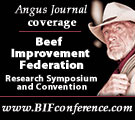Handling the Heat
How to keep your animals cool in the heat of the summer.
Summer in the southeast is usually hot and humid. These environmental conditions can create stress for our livestock. As producers we are charged with minimizing the impact this stress has on our animals. There are a variety of tools we can use to keep our animals happy and healthy through the summer months.
Have access to clean, fresh, cool water at all times. Place water tubs in an area of the pasture or barn that is shaded, keeping the water cooler throughout the day. Make sure there is adequate tub space for the amount of animals in the pasture or barn. During the hotter months additional water tubs may be needed to keep animals grazing evenly throughout the pasture.
Provide shade for livestock either through shade trees, sheds or barns. Make sure the shaded area is large enough that animals are not bunched up. Bunching does not allow animals to dissipate heat as well. Also, multiple shade areas will alleviate some of the issues that arise from heavily trafficked areas, such as mud and manure buildup.
Work animals in the early morning hours or late evening, when the worst heat of the day has subsided. The early morning is usually the best because in the evenings animals may still be trying to cool down from the heat of the day. Shorter work periods with rest breaks built in will also alleviate some stress.
Hauling animals should be done in the early morning or late evening. Trailers should have multiple windows and vents for optimal airflow. Placing shavings or rubber mats on the bottom can help reduce heat coming up from the road, and trailers that are light in color are typically cooler inside.
Change feeding times. In a pasture situation it is hard to dictate when animals graze; however, in a feedlot situation or when animals are stalled, we can change feeding times to lower body temperature. Feeding in the evenings will allow the animal to digest (which creates internal heat) during the cooler night hours. Also, feeding high-quality forage will produce less internal heat and eliminating excess protein from a diet will create less heat.
Preventative fly control allows livestock to spend less time and energy swatting flies. Some flies cause livestock to bunch together, which leads to a build up of heat among the animals. Having an abundance of flies can also place extra stress on the animal.
Use fans. Many producers will place fans in their barns. Make sure the fans you are using are specifically designed for agriculture. Home fans may not have the same precautions for dust and the environment that agriculture fans have. Also ensure the wires and plugs are away from animals and secured to decrease fire risks. Practicing these simple techniques can help alleviate the stress of the summer months, which should lead to more productive livestock.

Editor’s Note: Lindsay Craig is an upstate area livestock and forage agent with Clemson Cooperative Extension. This article was reprinted with permission from CU in the Pasture, the Clemson Livestock & Forages Team newsletter at
www.clemson.edu/extension/livestock/
newsletters/ivestock_newsletter_05_2015.pdf.





